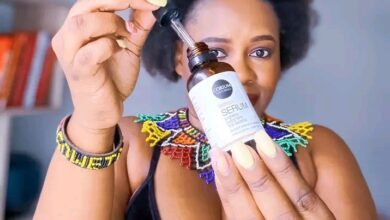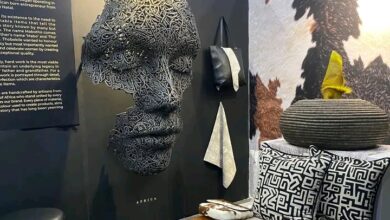From Township Legacy to Paint Pioneer: The Lessons Behind Zebraah Paints
From Township Legacy to Paint Pioneer: The Lessons Behind Zebraah Paints. Lungisani Zwane grew up immersed in paint, his father and grandfather were painters. In 2017 he founded Zebraah Paints in KwaMashu Township, Durban carrying forward the family legacy but transforming it. His journey from childhood exposure to owning a premium paint manufacturing business illustrates how heritage can become the foundation for innovation.
Creating a Premium Product in an Untraditional Setting
Zebraah Paints was born in a sector dominated by big players and commercial production centres. Instead of following the norm, Zwane chose to produce premium quality paint locally in his community. His company offers interior and exterior wall paints, roof paint and craft or art paint, providing township-accessible products at a high standard. This strategy helped build trust quickly.
Word of Mouth through Quality and Service
Despite minimal marketing budgets, Zebraah not only survived but thrived thanks to its reputation. High-quality product, reliable supply and excellent customer service generated referrals organically. Within a short time of launching, local contractors, schools, hardware retailers and property companies kept returning. By avoiding compromises on standards, Zwane used word-of-mouth as an engine of growth.
Breaking Challenges and Building Credibility
Entering a capital-intensive manufacturing industry from a township base posed enormous hurdles. Access to raw materials, production equipment, and distribution infrastructure were all early challenges. Zwane overcame these by learning operations hands‑on, forging local partnerships, and positioning the business as a community asset. His identity as a young black African founder helped create authenticity and solidarity with his market.
Strategic Expansion and Market Positioning
Zebraah Paints now serves diverse customer segments, retail hardware stores, contractors, schools, property managers and even craft shops. The company is planning to broaden its offering into road marking paint, industrial enamels, glossy finishes and more. That roadmap shows careful growth: validate current product lines, then scale into segments logically adjacent to the existing operations.
Local Manufacturing as Brand Strength
Manufacturing in KwaMashu Township became both challenge and distinguishing strength. It allowed cost control, direct oversight and faster turnaround times. It also fostered local economic development. Zwane’s roots in the community gave Zebraah legitimacy and loyalty. This ties into a broader lesson: brand identity can be strengthened through location-based authenticity.
Lessons from the Zebraah Playbook
- Turn heritage into value: Lungisani converted his family painting background into deep industry knowledge, then scaled into manufacturing. Rooted authenticity resonates.
- Focus on quality first: Even in a price‑sensitive market, Zebraah’s premium paint won trust and repeat business.
- Rely on reputation over advertising: Word-of-mouth and repeat customers can substitute for big marketing budgets when product quality is strong.
- Know your customers: Serving hardware retailers, contractors, schools and property firms allowed diversified revenue and stability.
- Expand with intention: New product categories like industrial paint and enamels are logical extensions tied to core capacity.
- Use community advantage: Township‑based manufacturing helped control costs while giving back to the local economy, a win‑win.
Scaling Through Community and Commitment
Zebraah Paints did not grow by chasing volume. It focused on trust, repeated orders and incremental scaling. With each customer delivered, the brand gained credibility. Lungisani’s hands-on leadership, from production decisions to external positioning, kept the business aligned with community expectations and brand values.
Inspiration for Aspiring Entrepreneurs
Lungisani Zwane’s story demonstrates what it takes to build something impactful in an unexpected place. With limited capital and deep roots in his township, he transformed ancestral painting experience into local-scale manufacturing. His success shows that you don’t need to wait for outside validation, start where you are, prioritize quality, serve your community, and scale logically. The result can be a brand that outlasts fads and inspires others.


